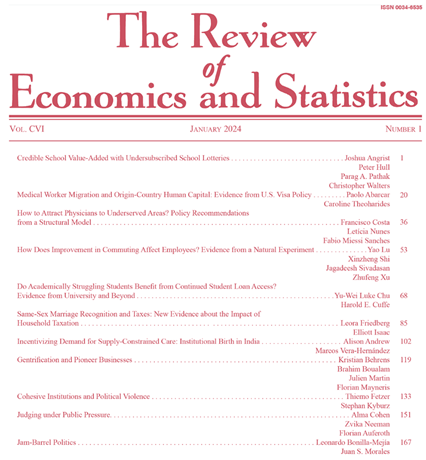美国的人力资本与管理革命:通用电气公司的证据
IF 6.8
1区 经济学
Q1 ECONOMICS
引用次数: 0
摘要
本文通过将通用电气公司--一家与管理等级制度的 "看得见的手 "有关的典型企业--的员工与 1940 年的人口普查联系起来,估算了美国第一个巨型企业时代人力资本积累的回报。我利用赠地学院和历史悠久的大学与出生州的邻近程度进行识别,发现通过在等级制度中的资历、控制范围、收入和管理培训的选择,高等教育带来了巨大回报。研究结果凸显了一家知名企业管理革命的人力资本决定因素,而这一决定因素是由早期对美国教育系统的公共投资所推动的。本文章由计算机程序翻译,如有差异,请以英文原文为准。
Human Capital and the Managerial Revolution in the United States: Evidence from General Electric
This paper estimates the returns to human capital accumulation during the first era of mega-firms in the United States by linking employees at General Electric—a canonical enterprise associated with the “visible hand” of managerial hierarchies—to the 1940 census. I find large returns to higher education through seniority in the hierarchy, span of control, earnings, and selection into management training, using the proximity of land-grant colleges and historical universities to birth states for identification. The findings highlight the human capital determinants of the managerial revolution at a prominent firm, driven by earlier public investments in the US education system.
求助全文
通过发布文献求助,成功后即可免费获取论文全文。
去求助
来源期刊

Review of Economics and Statistics
Multiple-
CiteScore
8.50
自引率
0.00%
发文量
175
期刊介绍:
The Review of Economics and Statistics is a 100-year-old general journal of applied (especially quantitative) economics. Edited at the Harvard Kennedy School, the Review has published some of the most important articles in empirical economics.
 求助内容:
求助内容: 应助结果提醒方式:
应助结果提醒方式:


